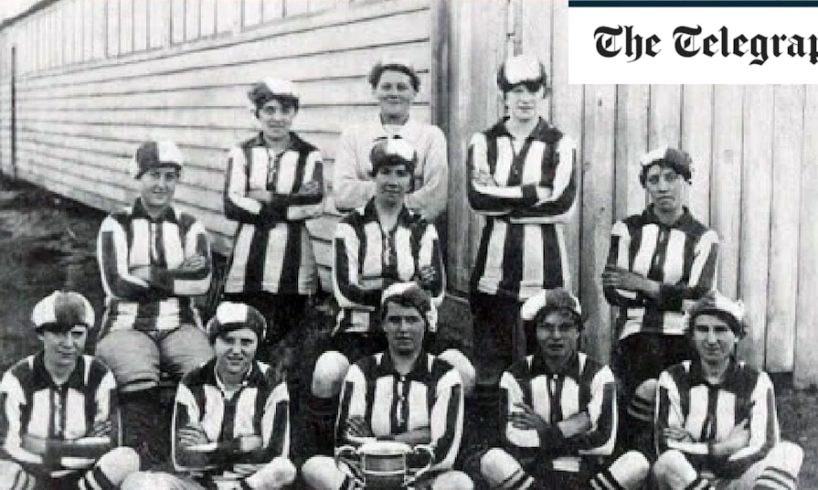
Reay, born in 1900 in the Northumberland coastal town of Blyth, was still a teenager when she joined Spartans and ended her solitary season having never lost a game, winning a cup final, too. Waugh came across her while he was looking to write a play telling the story of another player involved in that Munitionettes Cup final of 1918.
He says: “The two best teams, Bolckow Vaughan and Blyth Spartans, met in a final at St James’ Park in March. It ended in a 0-0 draw in front of 18,000 people. The replay six weeks later was held at Middlesbrough’s Ayresome Park and saw Blyth Spartans win 5-0 in front of a crowd of 22,000. Bella Reay scored a hat-trick.
“She wasn’t actually the player of the match, that went to Mary Lyons. She was the youngest player to play for England when she was just 15. So the idea was initially to do a play about her, but the club historian at Blyth gave me all the records and Bella was the obvious person to write about, unbeaten in 30 games, in 14 months, scoring 133 goals.”
Women’s game remained banned in England until 1971
Her time in the spotlight was short. Reay was one of the best footballers in the country in 1918 but three years later, she, along with every other female player, was banned from playing – a law that would remain in place until 1971.
“Football was caught up in a wider shift after the war,” says Waugh. “These men running the game were fearful about the rise of women’s football and feared it would undermine them.
“On top of that, the mines that had been nationalised during the war were returned to the coal owners. They had made a lot of money during the war but told the miners they had to take a 40 per cent pay cut now it had ended. This was April 1921.
“On December 5, 1921, women’s football was banned. It was a disgrace. It’s a shameful piece of FA history. The play isn’t just about football, it’s about women’s rights. These women who had saved the war effort, they weren’t even allowed to vote. The women who had helped save the country couldn’t vote until 1928. Women were cast aside after the war, football was a symbol of that desire to put women back into their ‘rightful place’ – having children and looking after the men. Women like Bella were forgotten and pushed aside. That’s why I wanted to tell this story.”
Wor Bella runs at the Bread & Roses Theatre, Clapham, on April 22-24 and at Newcastle Theatre Royal on April 27-28.





